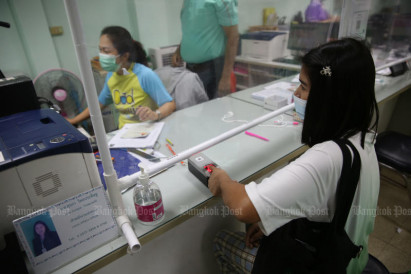
The Bangkok Metropolitan Administration (BMA) has come up with a plan to reduce public service wait times at district offices by upgrading their technological capabilities.
During a meeting with Bangkok’s heads of agencies on Thursday, governor Chadchart Sittipunt said from January to last month, 70,000 people applied for ID card services, and about 400,000 asked for house registration services.
However, the BMA found that 52% of them had to wait more than 15 minutes to receive services, especially for ID cards, he said, adding the BMA had a target to limit the waiting time for each person to 15 minutes.
Only 48% of the people received services within 15 minutes of waiting. As a result, the governor said the 50 district offices need to improve the speed of services given to people. “We will use technology to quicken [services] so people do not waste their name hanging out inside each district office,” he said.
The governor said he is considering implementing online booking for queues related to ID cards and housing registration, Line alerts on queues and a system that records the timestamps of problems that may occur.
He said the Line alerts will also inform him and the management team of each district about problems that arise. The system will also record complaints from people, which will help improve service efficiency, he said.
Regarding call congestion and lack of answering the phone at some district offices, he said the BMA sent out letters to more than 1 million people informing them that officials upgraded its database and land tax system so they can handle 400,000 additional people.
As a result, landlines in some district offices were jammed up, he said, adding that the administration will order each district office to have a dedicated phone line so officials can answer questions.
Mr Chadchart also discussed his waste management plans.
He said the use of rubbish trucks in most districts is not in-line with their rental contracts, causing management inefficiencies. He said each truck is required to work for 16 hours a day, split into day and night shifts. However, the trucks only run for eight hours, he said.
He then outlined plans to enhance truck usage, including allowing rubbish collectors to work overtime, modifying collection routes or employing homeless people to work. He said he is also planning to change the collection period to twice a week to help boost truck usage.

